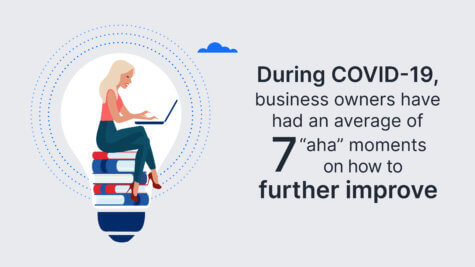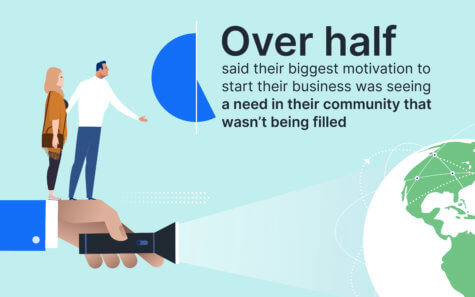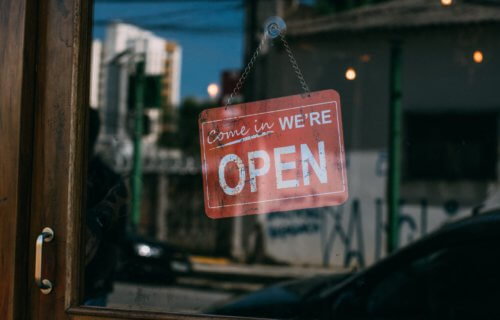NEW YORK — There’s an old saying that if you love what you do, you’ll never work a day in your life. A new survey finds many also believe if you don’t like your job, you won’t make much money either. Four in five American entrepreneurs say if you’re not passionate about what you do – your business will fail. The coronavirus pandemic, it seems, has led many business owners to reflect on their work and potential changes they could make as a result of the economic downturn.
The OnePoll study asked 1,000 American entrepreneurs and business owners about the biggest lessons they’ve learned from starting a business – especially during COVID-19. While the pandemic has naturally been a big challenge for the majority of small business owners, the average respondent said they’ve had seven “aha moments” on how to further improve.

The survey, commissioned by Kajabi – an all-in-one knowledge commerce platform – reveals that despite the challenges of COVID-19, 78 percent of respondents have used lockdown as an opportunity to further plan how to grow their business once things return to normal.
Starting a business takes time
On average, respondents have been working on their business concepts for six years. They noted it took them four years just to start turning real profits and five years to start feeling like a real success. For over half of those surveyed, their biggest motivation when starting their business was seeing a need in their community that wasn’t being filled.
Another 52 percent want to be their own boss and 33 percent want the opportunity to make money independently. The average respondent also saved an average of $2,509.27 before they even started their business. They also lost an average of $935.33 within their first year of operations.
Men actually lost more money than women within their first year, reporting an average of $992.77 in losses compared to $880.29 for female business owners. Most businesses have come a long way since their initial start, as 71 percent say their business is drastically different today than when they first opened.

“In the last several months alone, we’ve seen countless people who experienced layoffs or furloughs due to COVID-19 capitalize on the strong demand for online learning by packaging up their unique expertise as an online business offering,” says Kenny Rueter, CEO and Co-Founder of Kajabi, in a statement. “By monetizing their existing knowledge, many of these users can now sustain their financial obligations and day-to-day needs during such uncertain times. They’re discovering that by launching digital products which typically carry lower overheads, they’re becoming profitable at faster rates than traditional business.”
Asking for help can be a hard thing to do
The hardest thing for business owners surprisingly wasn’t raising the money to start, it was actually learning to ask for help (41%), with their start-up funds closely behind (40%).
Another 36 percent said they struggled to learn how to embrace change, 34 percent had a hard time finding the time to relax, and 16 percent struggled to accept criticism. One challenge that respondents are struggling with now is learning how to improve their online presence. Two in three American entrepreneurs (67%) are struggling to improve their online presence, but they don’t know where to go for help.
“There is so much noise in the entrepreneurial corner of the internet,” Rueter explains. “Beginners get pulled in so many directions and get stuck trying to master too many skills at once. Even seasoned business owners get bogged down by second-guessing and shiny objects.”
